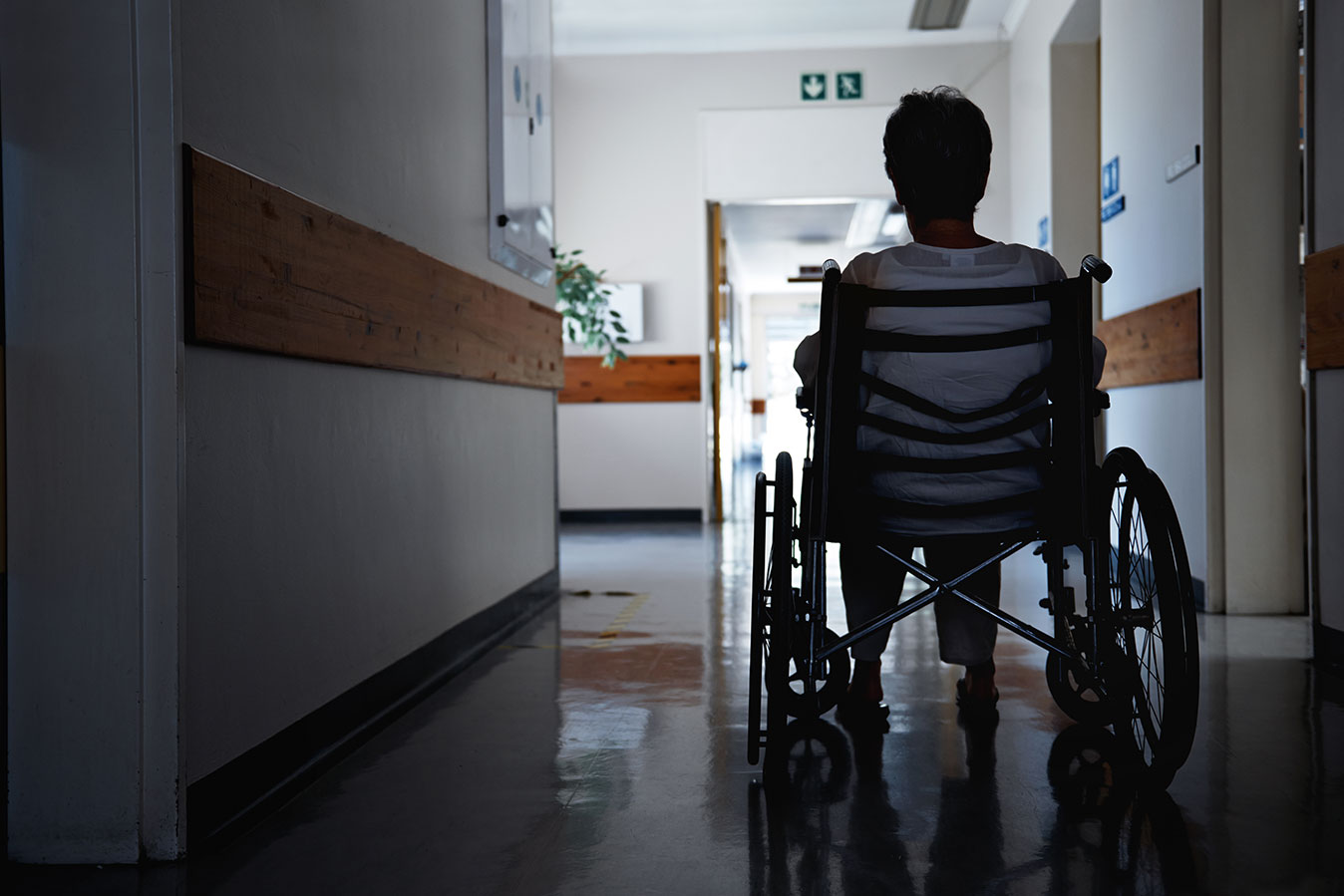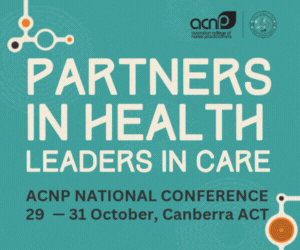What would happen if the number of enrolled nurses, or shifts, were reduced in a nursing home?
According to the ANMF’s National Aged Care Survey 2023, released last October, such a move would create more work for registered nurses, increase workloads for AINs/PCAs/PCWs, and result in serious detrimental effects in the provision of safe and high-quality care. Respondents said getting rid of enrolled nurses would also increase the burden on remaining staff, meaning they have to work extra hours, or shifts, and worryingly, lead to decreased resident safety, such as an increased risk of falls and skin tears, due to the loss of experienced ENs from the floor.
“Dedicated and vastly experienced ENs [are] being replaced by new RN graduates who have little experience and have no intention of staying in aged care,” one EN from South Australia said.
“…decreased knowledge of residents care…EN has been working there for years and a lot of RNs are new or less than a year,” an RN from Queensland shared.
Tellingly, 35% of participants reported being told by a colleague or their employer that there was no funding allocated for ENs as part of recent legislated RN 24/7 and care minute funding requirements. Similarly, over one-third of participants revealed their employer had tried to reclassify EN positions, mostly to lower roles, such as PCWs.
“Aged care providers are not recognising the experience and expertise enrolled nurses bring to aged care and the difference they make to care outcomes,” says Julie Reeves, ANMF’s Strategic Lead – Aged Care.

“Enrolled nurses continue to have their shifts reduced, their hours cut and their role title changed to care worker. Enrolled nurse shifts and positions also continue not being replaced. The reported number of care minutes for enrolled nurses is decreasing, reflecting the very real and adverse impact of some providers.”
The results of the survey clearly highlight that staff view the role of ENs in aged care as critically important. Yet, due to ambiguity within recent aged care reforms, challenges persist.
Last October, mandatory care minute targets in residential aged care, stipulating an initial average of 200 minutes of care per resident per day, including 40 minutes of RN time, came into effect. Put simply, the unintended problem created was that the legislation does not specify how the remaining average care minutes should be distributed among ENs and AINs. Despite their vital contribution, it’s subsequently allowed some aged care providers to game the system, demonstrated most visibly in the high-profile Southern Cross Care Tasmania case, with providers attempting to make ENs redundant or reclassifying them into other, often lower positions.
“Many members have alerted the ANMF to a number of concerning practices relating to staffing changes that aged care providers have made within nursing homes that are inconsistent with the intention of the requirement,” Ms Reeves explains.
“The role of enrolled nurses within aged care continues to be negatively affected by the actions of some aged care providers. An ANMF member in Tasmania summed up the experience of many enrolled nurses across the country when she said that she now feels ‘invisible’ to her employer.”
At the ANMF’s 16th Biennial National Conference, held last October, delegates passed a motion calling on the federal government to update the legislation for care minutes to specifically mandate enrolled nurse care minutes as part of the required skill mix to ensure safe staffing and skills mix.
The call to action mirrors results from the ANMF’s Aged Care Survey, with almost all participants believing that the federal government should specify enrolled nurses in the care minute funding allocation.
“It’s not fair for the government to lessen the hours or disregard the work of enrolled nurses…our experience seems disregarded,” an EN from South Australia said.
“This will make it clear to employers and protect ENs from being pressured to have their permanent contracts reduced to <70% of their agreed contracts or being forced to take ungenuine redundance packages,” another EN said.
In 2024, the ANMF will continue to lobby the federal government for legislative change to mandate minimum EN minutes that includes clear specification of the role and its contribution to quality care delivery. It is also recommending that providers be held to account in delivering the care minutes for their facility, including ongoing monitoring and audits, with data from many sources, particularly direct engagement with the worker voice of nurses and PCWs.
“These are not isolated instances of one or two providers,” says Ms Reeves.
“They are common experiences of ANMF members employed across the country.
“The ANMF calls on the Government to urgently commit to implementing a mandated care minute requirement specifically for enrolled nurses. This will ensure ongoing commitment to enrolled nurses and recognise their invaluable contribution to resident care outcomes and improve the staffing and skill mix within facilities. It will directly change provider behaviour in undervaluing enrolled nurses within the sector and engage them to employ enrolled nurses effectively, while also reducing the flow-on pressures of poor staffing practices to residents and other workers.”









18 Responses
This has been going on for years and as an experienced EN of 42 years it drives me crazy it was happening when I was working in the public sector
I would rather work with an experienced EN any day than a poor new grad RN shoved in to fill a position then put them in charge of 120 bed facility without any managerial support at all.
We need ENs they are such an integral part of a great team . I could go on for ages about how I feel about them being replaced, very poor management of good nurses , don’t know who makes these ridiculous decisions
The idiots that make these decisions would be wise to realise that they will be filling a bed in aged care down the track one day, if they’re lucky…..or hmmmmm 🤔 maybe not !
I am an Enrolled nurse in an Aged care home. I feel undervalued and wonder why I still pay for ANF membership if they do not advocate for us Enrolled Nurses. I do the same tasks , only not carrying DD keys. Disappointed
If you are doing the work of an RN then you are working outside your scope of practice. Sadly this happens in many facilities particularly when the EN is very experienced. Sadly you are being used by management who will hang you out to dry if there is an issue.
It’s funny how een do all the work why most een sit in front of a computer as a een I have worked in the hospital and agecare and us een do everything even the care plans we put all the information in them and then leave it for a rn to sign off on een are so undervalued and do all the work rn get paid a big bonus for staying in age care een get nothing I have worked in a agecare place where the night rn never showed up and none of the rn would do the night shift so I was doing the night shift I was the only nurse on the floor with the cares. I had a rn on call to get permission to give a prn. I also had a rn tell me she got a phone order for a medication and she told me to give this medication I asked where the order was and she told me wrote it a handover I asked who was the other nurse that listened to the order and why it wasn’t written on the medication chart in phone order section and signed by both nurses she told she didn’t have anyone other her self take the order I told her I won’t be giving that medication as it’s illegal and she told me she didn’t know she had have another nurse with her when she took the order I was in shock. I go on with so much more Een need to stand together and fair treatment and recognise for the work we do
I unfortunately understand whole heartedly the comments made by fellow EN’s. I feel dejected and demoralised both by my employer and by new RN’s who have neither the skills or the passion that should be afforded to our wonderful aged care community.
I’m an EN in aged care and feel very undervalued. They can’t get enough RNs in aged care now so care would get a lot worse, the government needs to understand how valuable ENs are they do everything an RN dose in aged care just work under an RN , if the government wants go nurses in aged care forget about the letters (EN ,RN ) and increase their pay pay them what their worth as on average we get almost $5 an hour less than a nurse the the hospital system. It’s a job you do for love not everyone can cope with the stress, frustration and sadness of the job. Stop wanting worthless boxes ticked and let nurses get back on the floor and care for people!!!!
As an EN of 30 years I am absolutely disgusted that our role and experience is undervalued and has been for years and now because of the ignorant beaucrats who have generally no clue about the EN role and scope of practise.Our most vulnerable are being put at risk.
Most New grad RN’s do not have the clinical or life experience to be in charge and are not ready for this responsibility I konw from the years I have been in aged a majority of the clincal work is done by the EN which is not recognised by management or the governmrnt. A lot of the RN’s ,will not stay and have no interest in making it a career.
For goodness sake we are REAL nurses and deserve the recognition of our peers and the support of the decsion and policy makers.
As an EN you have the same responsibilities as an RN. You are accountable and the expectation is that you keep the Residents safe on your watch. Many shifts don’t have an RN on the floor and the EN only contacts an RN if they encounter a problem they can’t resolve or that is outside of their scope. Those times are not often as experienced EN’s have the ability to handle most situations. In aged care an EEN does hold the DD keys. An EN can upskill and become competent in catheterisation and Nikki pumps for example. No Nurse should be working outside of their scope be it an EN or an RN. Taking EN’s out of aged care is costing aged care providers more money as they are now employing more RNs to meet the quotas. And it’s been noted that providers will employ Graduate RN’s who simply don’t have the experience required to work in the aged care sector and who are not going to make it their career choice but are using the opportunity to get their grad year done and then go off into their chosen field of nursing. Having Graduate RN’s is great but also keep the EN’s employed to work with the RN’s. We are all clinically trained and should be treated as such.
I was inspired by the ENs we had at work because they provided extra miles with the residents and their families and proactively advocating for them. I am proud that I am an EN now because of them. In my current work I am still a care worker and watching the medicators or cert IVs giving out tablets, I can see that they couldn’t care less about the residents and just leaving tablets on the table or no understanding about dementia patients at all. Gutted with everything I see on a daily basis and wish I could get out soon and find a job that can accepts me because I know that I can provide care above and beyond.
i am a pca of 25 years have seen so many changes in these years our ENs have run our 60 bed facility with a NUM now we are getting grads with poor english people skills. quality of care has gone down all the experienced staff have gone
what is the next 20 years going to bring
I totally agree ENs are an important part of aged care. They do medications and wound care always work within their scope of practice. They are more than a carer They have done 2 years of training THey ARE REIGISTERED with APHRA. the same as a RN their care minutes should be included as registered staff. After all RNs are hard to employ since Covid we have lost so many. I know at my place of work we struggle to get RNs. I am reasonably new to my company and the ENs here are used as cert III carers. I feel this is degrading. Government rethink this stupid idea of aged care care minutes our job is to give our beautiful elderly the best quality of life for the last days of their life without the pressure of these new regulations. If you work in aged care you are a special sort of person who love and care for their residents we do not need minutes to prove we do. The residents and their families would tell us if we did. It look after them properly.
The government needs to look closer into hospital acute care more closely and leave aged care alone you are killing it. Remember you will need our love and care one day
Totally agree with all of the above.
Having recently retired from.the industry for all those reasons.
Aged Care is hard work, with over 44 years of experience I felt under valued and pushed aside.
Currently enjoying retirement.
My Mother just passed away in a nursing home. She also had bad fall during hey stay in the first 2 weeks. There has been a major investigation into her death. There wasn’t a drinks chart when she was admitted, they asked me
minimal questions and never had time to talk to me when I needed to inform them of something mum would need. Long story short she ended up severely dehydrated. Same thing happened when they did there changeover from the
hospital (which are conjoined) when she went into agedcare. I am devastated and looks like it’s going to be a lot longer before it’s settled.
At my work I essentially do the same job as the RN. I have my own ward. PCWs I am in charge of. I contact doctors. I do wounds. The exact job that the RN in the ward next to me does. They are often angency and less experienced and get paid double or more of my pay. I also have an hour less on my shift to do the work. Resident care will absolutely suffer by getting rid of ENs.
I am an EN in aged care and a short time ago was also replaced by a new grad RN just finished their degree. I was made a “floater”. I was left feeling like I was not part of them team and basically a gopher for RN’s, very unappreciated. Even on the roster I was not allocated as an EN. Just a floater. I am happy my manager really does understand the value of an EN and reinstated me to my role. Even under pressure from higher up the chain.
I’m also an EN and worked with new RN on the floor who basically didn’t knew anything. She was so terrified and scared and has to call me for a simple thing when a resident was having a short of breath.
They should just diminished the diploma of nursing if they don’t want to pay for ENs. Why did we have to study for 2 years for nothing and be invisible to them. This is disappointing.
I’ve worked in the hospital setting since 2019. I have the full scope of practice that registered nurses do except I can’t do an in charge shift or work independently in the ICU without being buddied up with an RN. Other than that, I’m fully competent in emergency, surgical and spec med.
I’ve seen many people come and go from the hospital during my time. What stands out to me the most is that in so many other industries you’re either competent for the job, or you’re not. You don’t get paid more or less based on having a degree or a diploma. In other industries that would be deemed discrimination and archaic. Never would an inexperienced employee get a promoted position just because they’re degree qualified vs on the job EXPERIENCE.
The truth be told, I’ve worked with brilliant ENs who are relied upon during serious MET calls/code blues, and I’ve worked with some RNs that wouldn’t even be capable to tie their own shoe laces – of course I’ve worked with brilliant RNs too.
Furthermore, the government is allowing RNs from overseas to do a bridging course of six months training and then they’re a qualified RN in Australia. I, however, have to do two years at university, at an addition to my HECS debt, then do 800 hours of unpaid clinical placement, where I can’t even give a Panadol without being micromanaged by an RN. Never has my skill set been an issue when I’m asked to stay back for a double shift or to cover a specialised area because the whole floor is “grad heavy.”
Tell me how it’s fair?